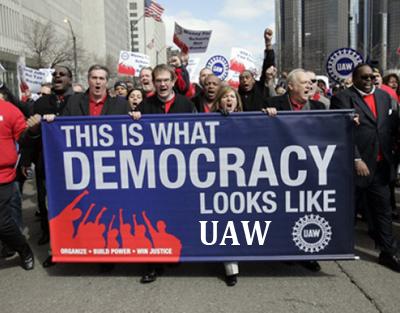The Auto Workers Obama Left Behind
Michele Malkin looks behind the president's rhetoric and self congratulations over "saving" the American auto worker to remind us of those the president choose to leave behind -- workers who were not part of the Big Labor machine in Michigan: The White House fairy tale about the Happily Ever After Auto Bailout is missing a crucial, bloody page. While President Obama bragged about "standing by American workers" at a rowdy United Auto Workers meeting Tuesday, he failed to acknowledge how the Chicago-style deal threw tens of thousands of nonunion autoworkers under the bus. In a campaign pep rally/sermon billed as a "policy speech," Obama nearly broke his arm patting himself on the back for placing his "bets" (read: our money) on the $85 billion federal auto industry rescue. "Three years later," he crowed, "that bet is paying off for America." Big Labor brass cheered Obama's citation of GM's "highest profits in its 100-year history" as the room filled with militant UAW chants of "union made." "Union made" -- but who paid? Scoffing at the criticism that his bailout was a massive union payoff, Obama countered that all workers sacrificed to save the auto industry. "Retirees saw a reduction in the healthcare benefits they had earned," Obama told the congregation, er, crowd. "Many of you saw hours reduced," he sympathized, "or pay and wages scaled back." Let's clear the fumes (again), shall we? The bailout pain was not distributed equally. It was redistributed politically.







